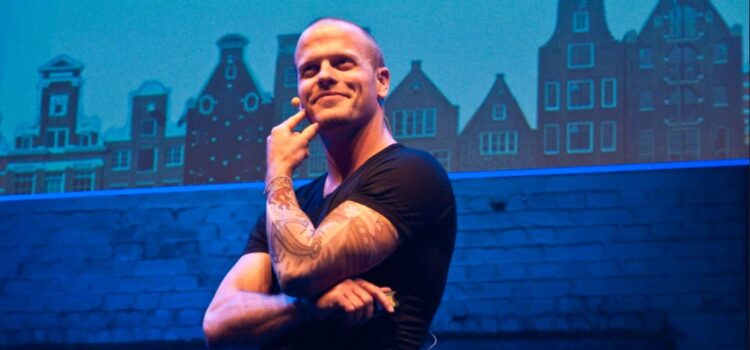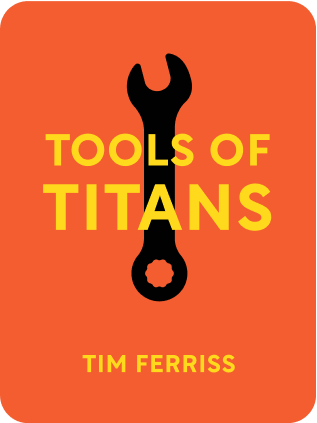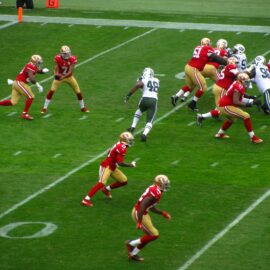

This article is an excerpt from the Shortform book guide to "Tools of Titans" by Timothy Ferriss. Shortform has the world's best summaries and analyses of books you should be reading.
Like this article? Sign up for a free trial here .
Do you dream of having your own business? What is the number one factor for becoming successful as a beginner entrepreneur?
According to entrepreneur and lifestyle guru Tim Ferriss, the most important thing you need to get successful in business is 1,000 true fans. True fans become your direct source of income and the major marketing force for ordinary fans.
Keep reading for Tim Ferriss’s business tips on how to start a successful venture and grow it.
Starting a Business
In his book Tools of Titans, Tim Ferriss shares the advice of “titans”—highly-performing people at the top of their game. Many of the titans he interviewed for the book are entrepreneurs of some kind—often by building businesses, or by being self-employed as authors, entertainers, or media creators. Below are some of Tim Ferriss’s business tips he’d compiled from the interviews.
Get 1,000 True Fans
To be successful in business, you don’t need to be a global superstar or have millions of followers.
Instead, you need just 1,000 true fans (a concept popularized by Wired founding executive editor Kevin Kelly). A true fan is defined as “a fan who will buy anything you produce.”
If you can get true fans, then you’re sure that you’re solving problems for a real group of people. Produce work to excite your 1,000 true fans, not to get a lukewarm reception from 100,000 people.
- Author Kurt Vonnegut suggested that you should “write to please just one person”—yourself.
- Music producer Rick Rubin: The best art is polarizing. If half the people love it and half hate it, it’s pushing the boundary and not catering to the mainstream.
- Investor Eric Weinstein: Mainstream celebrity fame is overrated—it brings more liabilities than benefits. Instead, you want to be famous among an exclusive group of 2,000 people you handpick.
Be Unquestionably Authentic
Many titans, especially those in entertainment, praised authenticity. People crave realness and connection, and being yourself will find the audience that likes you for you. Don’t be afraid to differ from common sense or society’s expectations to be yourself.
Quotes and stories on being authentic:
- Investor Chris Sacca: “Be your unapologetically weird self.” Sacca makes a note of only wearing cowboy shirts in public.
- Comedian Whitney Cummings found her greatest comedic success in revealing her embarrassing moments, which allowed her audience to connect and feel a catharsis.
- Actor Seth Rogen started his standup as a teenager trying to imitate other comics. Another comic told him he was the only one there who could talk about trying to get his first handjob, and he should talk about that.
- Cato, a Stoic senator in Ancient Rome, purposely wore darker robes than was customary and wore no tunic. As expected, he was ridiculed. He wanted to train himself to be ashamed only of things that are truly worth being ashamed of.
- Food critic and TV host Andrew Zimmern: In the pilot of his TV show, Zimmern could have made an easy joke of a Japanese restaurant’s name, which translated to “morning erections.” But he stayed true to himself and stayed respectful, which set the tone for his entire show. It’s a lot less work just being yourself.
- TV host Glenn Beck: Early in his radio show, a caller accused Glenn Beck of being Mr. Perfect. For 15 minutes, Beck shared his biggest mistakes and his past as an alcoholic. He first thought his career was over, but he then realized people are starving for something authentic.
- Chessplayer Josh Waitzkin: Being world-class requires embracing your eccentricity and building on it.
- Podcaster Dan Carlin (Hardcore History): Copyright your faults. When he started on radio, his producers complained that he was too loud and maxed out the recording meter; he retorted that this was his style.
- Film director Jon Favreau (Iron Man, The Lion King) advises that instead of trying to be funny directly, go for the truth, and you’ll find funny along the way.
- Braintree founder Bryan Johnson: He first sold credit card processing door-to-door with his honest pitch—“we’re the same as everyone else, except we’re honest, transparent, and care about customer service.” He was honest in an industry with shady practitioners.
Small Details Can Make a Big Difference
Small actions can have a large impact, especially if you’re building a product or providing a service. People notice the details.
- Investor Chris Sacca wears only cowboy shirts in public, leading to a clear self-branding, unending media mentions and a recognizable style no one will imitate.
- Entrepreneur and author Derek Sivers: When he founded CD Baby in the 1990s, he had fun with the shipping email. Instead of simply giving a confirmation, it cooed about how “our world-renowned packing specialist lit a local artisan candle and a hush fell over the crowd as he put your CD into the finest gold-lined box that money can buy.” This little automated bit of joy could spread word of mouth.
- Reddit founder Alexis Ohanian did the same for error messages for his travel search company, Hipmunk. If you put in the same destination for From and To, it’ll say “That’s an awfully short trip.” Errors in setting dates show the error, “We don’t support trips to the past yet.” Trips that are too long warn, “Why don’t you just move there? 30 days is the max.”
- Chessplayer Josh Waitzkin thinks the little details add up to something big. If you’re not consistently maintaining quality, you’re encouraging sloppiness. There are hundreds of times more little moments than big moments, and they add up—do a good job in those little moments.

———End of Preview———
Like what you just read? Read the rest of the world's best book summary and analysis of Timothy Ferriss's "Tools of Titans" at Shortform .
Here's what you'll find in our full Tools of Titans summary :
- The habits and beliefs of 101 people at the top of their game
- Tim Ferriss' list of 17 questions you should ask yourself to challenge your thinking
- How emulating the habits of successful people you look up to can make you successful as well






